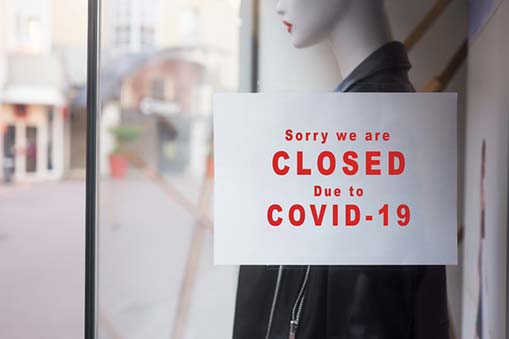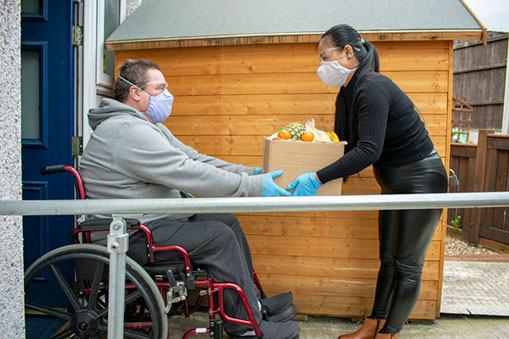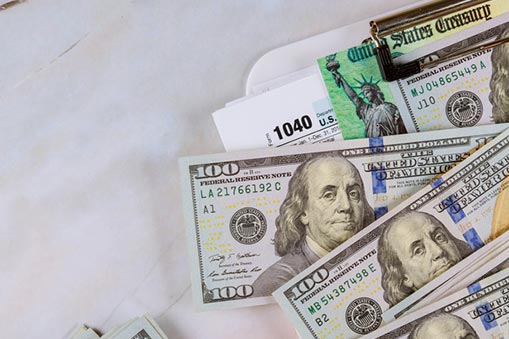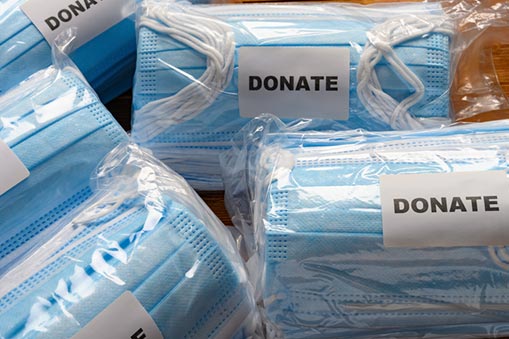COVID-19 updates from Auburn University


Pamela Ulrich, Under Armour Professor and head of the Department of Consumer and Design Sciences
College of Human Sciences

Karen Hopkins, marketing expert and lecturer
Harbert College of Business
Karen Hopkins says even though people tire of image advertising, companies must run those ads to keep up with competitors. She also discusses how companies have had to change their communications strategies and channels to reach consumers.

Franz Lohrke, Lowder Eminent Scholar and professor of management
Harbert College of Business
Franz Lohrke says opportunities exist for established businesses during economic downturns and he offers advice for those thinking about starting a business during this uncertain time.

Kelly Krawczyk, associate professor and Ph.D. program director, department of Political Science
College of Liberal Arts
The COVID-19 pandemic has had a wide impact across virtually every aspect of society, and the nonprofit sector is no different. Kelly Krawczyk, associate professor and Ph.D. program director in Auburn’s department of Political Science, teaches undergraduate and graduate classes on a wide range of nonprofit topics. She described how the coronavirus has affected the nonprofit world and highlighted how its leaders have stepped up to help during the crisis despite their own struggle to survive.

Melissa Blair, associate professor of history
College of Liberal Arts
While a pandemic indicates primarily a health crisis, there are many societal facets associated with it that are still being explored. One of the people looking at how a crisis may exacerbate existing disparities among the sexes is Melissa Blair, associate professor of history. Blair researches and teaches U.S. women’s history. With an April unemployment rate more than 14%, Blair talks about how and why unemployment affects American women and what new challenges and outcomes are likely to arise.

LaKami Baker, interim executive director of Outreach’s Government and Economic Development Institute
LaKami Baker discusses how the Government and Economic Development Institute’s outreach is critically important to the state as we look to restoring the economy and getting back to work and developing sound strategies to dealing with current and future public crises.

James Barth, professor of finance
Harbert College of Business
Pei Xu, assistant professor of business analytics
Harbert College of Business
Business faculty members James Barth and Pei Xu say using digital currency, or cryptocurrency, instead of paper money would reduce the spreading of viruses and they comment on the buying and selling of cryptocurrencies.

John Jahera, Lowder Professor Emeritus of Finance
Harbert College of Business
John Jahera covers the possible effect of the coronavirus stimulus packages on the national debt, the prospect for inflation and how citizens can protect their financial well-being. He says we will likely see an inflation rate of less than 2.5 percent in 2020 and perhaps lower than 2 percent, the Federal Reserve’s targeted rate.

Brian Gibson, the Wilson Family Professor and executive director of the Center for Supply Chain Innovation
Harbert College of Business
Brian Gibson comments on the impact of coronavirus on sales projections for retailers and suppliers, how supply chains are adapting and how consumer costs will be affected. He also gives details on the May 12 Fusion supply chain webinar.

Dave Ketchen, Harbert Eminent Scholar and professor of management
Harbert College of Business
Dave Ketchen comments on the “safer at home” status, provides advice on spending your stimulus check and what to do if bills are past due.

Hyeongwoo Kim, Patrick E. Molony Professor & Department Chair, School of Economics
College of Liberal Arts
A unique combination of a pandemic, stay-at-home orders and an ongoing price war between the world's top oil producers has led to historically low oil prices and a growing global crisis. Hyeongwoo Kim helps sort it all out.

Kimberly Key, the PWC Professor of Accounting in the School of Accountancy
Harbert College of Business
Professor Kimberly Key provides information on federal stimulus checks, payment amounts and how long it might take to receive the checks.

Jan Moppert, director of the Office of Professional and Career Development
Harbert College of Business
With some job offers being rescinded and the job market tightening for recent college graduates, it’s all the more important for candidates to do all they can to market themselves. Jan Moppert addresses this tough job market and offers tips on how recent graduates can set themselves up for success.

Peter Weber, assistant professor
College of Human Sciences
Peter Weber teaches in Auburn’s philanthropy and nonprofit studies program, which helps students identify their philanthropic priorities and be strategic in their philanthropy. Weber shares his expertise in this crucial time of giving and comments on how philanthropic work benefits COVID-19 relief.

Kerry Inger, associate professor of accounting
Raymond J. Harbert College of Business
Tax expert Kerry Inger explains how individuals and corporations can apply and benefit from the recently passed Families First Coronavirus Response Act and the Coronavirus Aid, Relief, and Economic Security Act.

Glenn Richey, the Raymond J. Harbert Eminent Scholar and professor in supply chain management
Raymond J. Harbert College of Business
The coronavirus outbreak has thrown yet another monkey wrench into the already delicate relationship between U.S. companies and their Chinese supply chain networks. Glenn Richey discusses what this latest development might mean for the strategic readjustment of supply chains across the global business landscape.

Dave Ketchen, Harbert Eminent Scholar and professor of management
Harbert College of Business
Dave Ketchen, the Harbert Eminent Scholar and professor of management in Auburn University’s Harbert College of Business, offers advice on how small businesses can survive the effects of the coronavirus shutdown.

James Barth, professor of finance
Harbert College of Business
Professor James Barth says the stock market drop is temporary and that government funds going to individuals and companies will provide the boost needed to get the economy going again.


